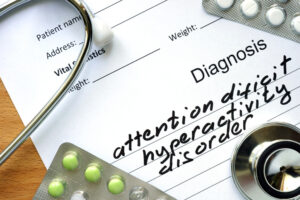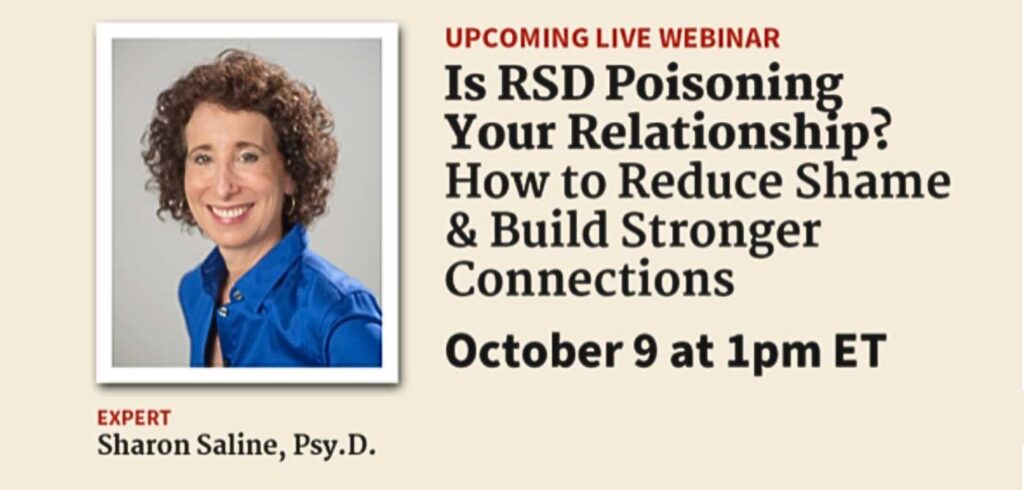Tis’ the season for restless nights, short days, and interrupted sleep! If you – like me – have trouble turning your brain off amidst the holiday hustle and bustle, then grab a cup of coffee or tea, pull up a chair, and read on for ways to wake up feeling refreshed and recharged in the morning when you have ADHD and/or Anxiety.
 An estimated 25-50% of people with ADHD experience sleep difficulties at some point in their lives. So what is it about having ADHD or Anxiety that makes sleep so hard to come by? Look no further than our biology and behavioral patterns. For many people, racing thoughts and an excess of energy at night can trigger insomnia, and contribute to dissatisfying sleep. People with combined ADHD and anxiety are also more likely to have a disrupted internal clock – making them more susceptible to sleep disorders (such as Circadian Rhythm Disorder, or Delayed Sleep Phase Disorder).
An estimated 25-50% of people with ADHD experience sleep difficulties at some point in their lives. So what is it about having ADHD or Anxiety that makes sleep so hard to come by? Look no further than our biology and behavioral patterns. For many people, racing thoughts and an excess of energy at night can trigger insomnia, and contribute to dissatisfying sleep. People with combined ADHD and anxiety are also more likely to have a disrupted internal clock – making them more susceptible to sleep disorders (such as Circadian Rhythm Disorder, or Delayed Sleep Phase Disorder).
Here in the darkest month of the year in the Northern Hemisphere, I’d like to help you avoid the cycle of sleepless nights and exhausted days with some practical, easy tips for better shut-eye this season.
This holiday, I’m here to help you avoid the cycle of sleepless nights and days with some practical, easy tips for better sleep this season.
*Create (and stick to!) a Sleep Schedule If you’ve got ADHD, sticking to a sleep schedule during the holidays can seem as impossible as finding a parking spot at the mall on Christmas Eve. The fix for this? Consistency. Try to go to bed and wake up at the same time each day— Set an alarm on your phone or your watch to remind you to head towards the bedroom and then add a second one as well. This system has really assisted me in disengaging from what’s going on and following through with my sleep hygiene routine.
Setting up and sticking with a sleep schedule might seem impossible to you. It certainly did for me when I started. But I’ve come to realize that, no matter what time I go to bed, my body generally wakes up about the same time every day. So I have to get my extra sleep on the backend of the sleep cycle which means hitting the sack at roughly the same time each evening. If this feels impossible, use your ADHD creativity to break things down and label them with humor. Maybe instead of “Go upstairs now”, you could use “Hey you actually are NOT a night owl,” or a funny graphic as a visual cue. Then set another alert ten minutes later along the lines of “Time for jammies and teeth” with a wink emoji.
Why it works for ADHD and Anxiety: Keeping your body on a regular sleep schedule helps regulate your internal clock. This means fewer “I can’t sleep because my brain won’t be quiet” moments, which aren’t fun, no matter the season. Instead of judging yourself that you need a reminder for self-care, embrace it. Nobody will see these hints except for you!
 *Practice Relaxation Techniques We all know the holidays are prime anxiety time—whether it’s managing family dynamics, figuring out the perfect gift for your brother, or just wondering if you’re going to make it through another office annual party. But practicing relaxation techniques can work wonders to help getyou through these difficult moments. A few minutes of deep breathing or progressive muscle relaxation (PMR) can take your stress from “I’m about to cry in front of the dinner table” to “I’m calmly handling this.”
*Practice Relaxation Techniques We all know the holidays are prime anxiety time—whether it’s managing family dynamics, figuring out the perfect gift for your brother, or just wondering if you’re going to make it through another office annual party. But practicing relaxation techniques can work wonders to help getyou through these difficult moments. A few minutes of deep breathing or progressive muscle relaxation (PMR) can take your stress from “I’m about to cry in front of the dinner table” to “I’m calmly handling this.”
A couple of great options to try:
– Deep breathing exercises: Inhale for 4 seconds, hold for 4 seconds, exhale for 4 seconds, pause. Repeat three times.
– Guided meditation: Apps like Insight Timer, Headspace or Calm can guide you through short meditation sessions designed to relax your mind and body, though some are paid subscriptions. A quick google using the term “guided meditations for sleep” gives great (free) results to start from. Playing these before bed can also help you wind down.
– Progressive muscle relaxation: Start by tensing and then relaxing each muscle group, starting from your toes and working up to your head. Hold your breath for the muscle tension and exhale on the relaxation.
Why it works for ADHD and Anxiety: These techniques help engage your parasympathetic nervous system (the “rest and digest” system), which is your body’s natural way of saying, “Okay, chill. We’re done for the day.” The holidays might make you want to scream, but relaxation techniques can help you keep your cool.
*Take Breaks The holidays truly may be a joyful time for some folks, but they can also be a *lot*—a lot of shopping, a lot of cooking, a lot of people, a lot of stuff to do. It’s also a lot of actual face time–moments when you are in a social situation expected to chat and participate in what’s going on around you. If you don’t take a break now and then, you might find yourself with a short fuse and feeling resentful.
All too often in my overly packed visits to my extended family, I make sure that I go to the gym regularly to get my head in a calmer, strong space. Exercise is critical for healthy breaks that offer us endorphins and healthy outlets for energy. And yet, I still find that it’s tough to gauge when I’m becoming flooded by too much socializing until I’m wiped out and even a bit weepy. My goal is to better notice when I’m approaching my limits of needing quiet recovery time before the wipe out occurs. I’m still working on that!
Try scheduling a few short, 10 to 30 minute breaks throughout the day. Get away from the noise and demands for interaction: go for a walk, lie down and listen to a podcast or music, do some yoga, Tai Chi or meditation. Frankly, several cycles of breathing techniques (box, triangle or alternate nostril) can be very restorative if that’s all you have time for. Even the smallest break can help lower anxiety and prevent burnout.
Why it works for ADHD and Anxiety: Quick breaks allow you to reset, which keeps your anxiety and hyperactivity levels in check. Then it becomes easier to settle down for sleep because you’ve stopped the pattern of running on empty. Think of them like little “mental vacations” that let you come back refreshed instead of frazzled.
The holidays don’t have to mean endless sleepless nights… with a little effort and some holiday magic (a.k.a. good sleep habits), you can navigate this season with a lot more energy and a lot less stress. Enjoy yourself and also practice taking care of yourself by paying attention to the fundamentals: sleep hygiene, good food and exercise.
So go ahead, enjoy the holiday cheer, but make sure you’re taking care of yourself by getting enough rest. After all, the best gift you can give yourself is a good night’s sleep.


 categories: stimulants (Ritalin, Metadate, Focalin, Adderall,Vyvanse, Journay, etc.) and non-stimulants (Strattera, Intuniv, Clonodine, Qelbree, Wellbutrin, etc.).
categories: stimulants (Ritalin, Metadate, Focalin, Adderall,Vyvanse, Journay, etc.) and non-stimulants (Strattera, Intuniv, Clonodine, Qelbree, Wellbutrin, etc.).  For your son, it sounds like the decision to pursue medication as a part of his treatment plan was one that you carefully considered and that has been largely beneficial. It also seems like everybody sees the positive results of the medication. The problem is that he doesn’t “feel like himself.” His mind doesn’t wander into creative jaunts the way he likes which works well in math class but not as much in art. Plus, no parent wants their child to feel “less than” anything, least of all like themselves!
For your son, it sounds like the decision to pursue medication as a part of his treatment plan was one that you carefully considered and that has been largely beneficial. It also seems like everybody sees the positive results of the medication. The problem is that he doesn’t “feel like himself.” His mind doesn’t wander into creative jaunts the way he likes which works well in math class but not as much in art. Plus, no parent wants their child to feel “less than” anything, least of all like themselves! 

 Many teens with ADHD procrastinate and appear to lack self-discipline. Why? Sometimes they have anxiety around how to approach the task, how to complete the task or
Many teens with ADHD procrastinate and appear to lack self-discipline. Why? Sometimes they have anxiety around how to approach the task, how to complete the task or 






 Parent self-care is essential during these times in a pandemic. Parenting an ADHD child or teen
Parent self-care is essential during these times in a pandemic. Parenting an ADHD child or teen 3. Shop local:
3. Shop local: Family estrangement refers to the loss of a former relationship between parents and children, siblings or other extended family members. Holidays are times when this estrangement can lead to anxiousness, PTS and other conditions. Estrangement reflects physical or emotional distancing and minimal contact or communication for an extended period. It can result from many things: physical, sexual, verbal, child or elder abuse, neglect, divorce, trauma, money, inheritances, substance abuse or something else. When people are estranged from their parents, their feelings may often be complicated. There may be a mix of relief, grief, sadness or anger. Often they see the decision to cut ties with that family member as a life-saving measure.
Family estrangement refers to the loss of a former relationship between parents and children, siblings or other extended family members. Holidays are times when this estrangement can lead to anxiousness, PTS and other conditions. Estrangement reflects physical or emotional distancing and minimal contact or communication for an extended period. It can result from many things: physical, sexual, verbal, child or elder abuse, neglect, divorce, trauma, money, inheritances, substance abuse or something else. When people are estranged from their parents, their feelings may often be complicated. There may be a mix of relief, grief, sadness or anger. Often they see the decision to cut ties with that family member as a life-saving measure.  child by his older, schizophrenic brother after his father died. When he finally told someone at his school, the Department of Social Services intervened. He was moved to his aunt’s house where he lived until graduation. Since he has no contact with that brother who currently lives with their mother, he also has no communication with her. This is a choice he made for his own mental health. He believes his mother chose his brother’s well-being over his own. In order to move on with his life and cultivate healthier relationships, he needed to sever their communication. He still deals with his traumatic past when memories arise periodically, but he’s been able to find a loving partner and create his own family.
child by his older, schizophrenic brother after his father died. When he finally told someone at his school, the Department of Social Services intervened. He was moved to his aunt’s house where he lived until graduation. Since he has no contact with that brother who currently lives with their mother, he also has no communication with her. This is a choice he made for his own mental health. He believes his mother chose his brother’s well-being over his own. In order to move on with his life and cultivate healthier relationships, he needed to sever their communication. He still deals with his traumatic past when memories arise periodically, but he’s been able to find a loving partner and create his own family. How long can I actually spend with this person before I start to feel overwhelmed or uncomfortable?
How long can I actually spend with this person before I start to feel overwhelmed or uncomfortable? My heart goes out to teens and young adults. Staying compassionate, offering to collaborate on tasks and being available to talk through emotions is critical in reducing teen stress and anxiety during this pandemic. Don’t try to solve issues. Offer suggestions and avoid getting hurt if they aren’t taken. Young adults often like to figure things out for themselves, which means trial-and-error learning. Sometimes the best support you can give is managing your own frustrations, sharing your feelings without blame or guilt and validating their successes.
My heart goes out to teens and young adults. Staying compassionate, offering to collaborate on tasks and being available to talk through emotions is critical in reducing teen stress and anxiety during this pandemic. Don’t try to solve issues. Offer suggestions and avoid getting hurt if they aren’t taken. Young adults often like to figure things out for themselves, which means trial-and-error learning. Sometimes the best support you can give is managing your own frustrations, sharing your feelings without blame or guilt and validating their successes.  playing a fun video game. It’s easy for teens to dismiss what they have in favor of longing for what they don’t. Help them shift their perspective to see the positive things that are going on instead of focusing on the things they are missing.
playing a fun video game. It’s easy for teens to dismiss what they have in favor of longing for what they don’t. Help them shift their perspective to see the positive things that are going on instead of focusing on the things they are missing. How ADHD Is Diagnosed. There’s no single test that can determine if you or your child has ADHD, but we’ll help you get the answers you’re seeking.
How ADHD Is Diagnosed. There’s no single test that can determine if you or your child has ADHD, but we’ll help you get the answers you’re seeking. 